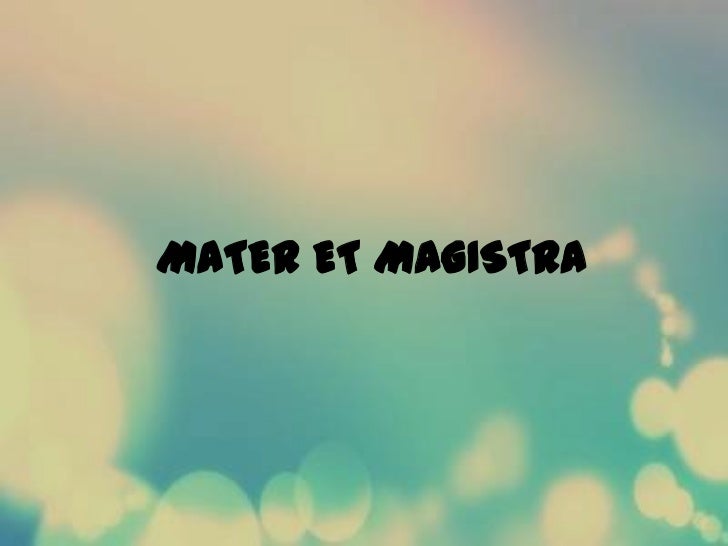
My latest and longest reply to my esteemed Patheos colleague, Pascal Emanuel Gobry.
My doctoral adviser and I finally realized, after years of careful but polarizing arguments, that perhaps there was more to our collegial quarrel than the arguments presented. His Mormonism and my Roman Catholicism were, in certain respects, irreconcilable—or at least would prove much more difficult to unravel. I suspect, to a far lesser extent, that some of this might influence the very rich discussion PEG and I are having.
In this reply I will try to layout what I consider to be the governing distinctions between us. Many of them are tiny but not inconsequential. I continue to marvel at the ways in which we are able to agree on so much and still remain at some distance in significant respects. I will not always try to primarily favour my side of each distinction, although in some instances I will defend where I draw the line, and that will surely bend in my favour. PEG is, of course, free to reject the terrain altogether or fight for his side of it as he sees fit.
The exercise of this dialogue has in many ways given me a very real sense of hope, a consolation even. And for that I must again thank PEG for his time and attention.
I will use subheadings, to try and organize my thoughts in a hopefully more digestible way:
1. Deschooling vs. Montessori.
PEG and I firmly agree that education and schooling must remain categorically distinct. However, I should be more transparent, as he already has: Just as PEG’s children are Montessorians before they arrive to school, my kids are deschoolers, whether they make it to a school or not. This is extremely specific. For instance, it divides the John Holt-inspired “unschooler” from the Ivan Illich-inspired “deschooler.” But I should be just as open about my own personal practices that might inform and bias the spirit of my argument.
(Here is a column I wrote for First Things two years ago that adds more meat to that bone. And, for a fine collection of essays that combine Holt’s unschooling with Catholicism, see The Little Way of Homeschooling, edited by Suzie Andres.)
2. Form vs. Function.
PEG’s “it.just.works” pragmatism strikes me as being attached to two related things: function and (as we will see) productivity. In this this case we do not disagree as much as one might think — I am very much influenced by, and friendly towards, American pragmatism. In fact, William James’s “radical empiricism” strikes me as being very close to PEG’s rich descriptions of Montessorianism.
The problem, as I see it, is that, again, Montessori-via-PEG resembles Dewey more than James. It flirts with instrumentalism. For James, everything had to be considered “in the widest sense.” This was the only proper scope that could account for experience. In this way, form often proves more “functional” than function because of the breadth and depth of its scope.
I am fine with functionalism, but not one that would treat function outside of its widest set of possibilities, including the rather oblique ones we find in form, as opposed to “content” (this point should become more clear as I move along). This is one of the many problems with the theory vs. practice binary, but I don’t have time to go into that here. Suffice it to say this: thinking and theory are practices, too.
3. Remarks on “it.just.works”
My issue with PEG’s “it.just.works” justification, then, is that we are not sure what “working” is. Recall Meno’s question to Socrates: “Tell me Socrates, can virtue be taught?” Socrates’ response eschewed the question because its assumptions about virtue and teaching (and even knowing) were themselves unclear.
No one can rhetorically take a political stance against results — it sounds like a nihilistic teleology. But what is hidden in that impossibility is the present obsession over things that work that, in reality, don’t work at all or at least not most of the time. Until we understand what education is and might be, until we wrestle with the real mystery of mystagogy that will always withhold something, until we admit that we do not know what “working” means or is, until we understand that curricula are not static prescriptions but questions that invite judgements and continual conversion and transformation, until THEN there is no place, on my view, for results or “it.just.works” philosophies. It is not that it doesn’t matter what happens in the end; it is that the only way to treat the end in a serious way is to not pretend that we know what it is.
4. Productive Pragmatism vs. Transmissive Pragmatism.
Points 2 and 3 combine to create a serious divide between the sorts of pragmatism PEG and I ascribe to. In PEG’s case, his pragmatic attitude is functionalist in way that treats function as a productive process. Think of a tea kettle: It produces steam. This is a linear, A to B, way of thinking and it certainly has its intuitive merits. However, my brand of pragmatism see this productive approach as shortsighted when applied to the human person. We produce excrement, but there is surely more to the functionalist story than this.
In my view, the function of a thing is most interesting and potent when we consider its transmissive properties. Think of a prism: It does not produce light or colour; it transmits it. When we think of the human mind, to say nothing of the heart or the soul, this version of pragmatism, governed by a transmissive notion of function, offers a more rich and clear description of what is real.
For this reason, I think that PEG is right to emphasize the practical domain as being integrated within the theological, but I also feel that his pragmatism is too vulgar to do the work it needs to do.
5. Cults and Catholicism
One point where I feel PEG is outrightly mistaken is in his attempt to compare Montessori cultishness to Roman Catholicism. It is, of course, a sound comparison prima facie, but the implication it carries does not follow. Just because there is a basic analogy to be made between two things, by no means implies the quality or extent of that relationship. For instance, there are other cults one could think of, and make the same comparisons PEG makes, but it would be very unsavoury to try and use their similarities to Catholicism as an apology for them.
(For the record, as much as I can see how my last reply could be read as implying cult-like qualities in Montessorians, I didn’t really intend it that way. If I wanted to be quarrelsome, and I do not, I would say that that move was a bit of a straw man, giving an opening to his other theological ideas.)
6. What is Method?
This problem leads to another, more serious, one. When PEG says “The rosary is a method,” and “The problem with education in the Church is that it does not have a method,” it is rather unclear what, exactly, PEG means by “method.” In my replies, I have endeavoured to distinguish fours thing: education, teaching, curriculum, and schooling. On my reading, Montessori is, primarily a curriculum, and a curriculum is simply the question “What is of most worth?” and the judgements that follow. PEG seems to see things very differently, where Montessori is more about teaching, which demands (on his view) methods for instruction.
There are number of problems with a purely instructional sense of teaching, and this will surely cut across our fundamentally different orientations to education. However, my issue here is that it is a category mistake to conflate “Montessori as curriculum” with “Montessori as teaching.” One might object that this is splitting hairs, but the difference it makes when they are allowed to be equated is that curriculum moves from a prudential judgement to a prescriptive demand. I am wholly opposed to the latter formulation and see the wisdom of the Church’s assertion that “parents are the primary educators of their children” as one in the same.
This is why, from an orthodox Catholic perspective, there is not single place to start and there is no minster of education (sorry, PEG!) or department of education in Rome.
7. What is Teaching?
A further problem is not simply that PEG equates a curriculum with teaching but that he seems to offer a poor description of teaching, rooted in what strikes me as a very odd reading of scripture.
Jesus was a Rabbi, especially in the book of Mark we see this role highlighted. But a Rabbinic teacher was not an instructor in the modern sense we have today. A teacher, from almost every wisdom tradition, was also a healer and a sage and a person of wisdom. This is identical to the Socratic ideal in this sense. To be a teacher is not to produce teachings; it is transmit wisdom by word and example, by one’s life. People followed Christ for his miracles, sure, but there was also the testament of his life, which is how the Gospels teach us today.
This is, of course, why the Church is called mater et magistra and why we call her teachings the magisterium. There is nothing missing there. There are no methods that need to be invented. There is a magisterial sufficiency that, on my reading, PEG either misses or is too cavalier about.
Conclusion
If method is nothing other than “a way” of doing X, then, there are many methods out there. There are ways to pray, ways to fish, ways to write, ways to become holy, ways to rob a bank, ways to love, ways to dance. I have no objection to this ordinary kind of method.
However, when we look at the ways we do things and the ways things are, we discover a radical absence of methods in advance of the thing that must be done. Any method that is worthwhile will include a number of reasons and ways to subvert the method when it becomes a burden.
I fear that the growth of Method in theory and in educational rhetoric is value-added to this everyday sort of method. In teacher preparation, student-teachers are taught methods more than they are taught about things that are not instrumental. Tell a room of school professional that they don’t need methods, or that they need more than methods, and they will almost certainly stage a revolution. We want methods in education because it is terrifying to think without a safety net. This may have served us well in times when there were real forms of safety that were somewhat reliable, but in uncertain times I believe that we must recover the art of bare thinking and discernment and love.
PEG and I agree about this in principle, but the details suggest that his route may be a bit too safe to accomplish its goals. But, then again, perhaps I am as much an acolyte to Ivan Illich as PEG is to Maria Montessori.











